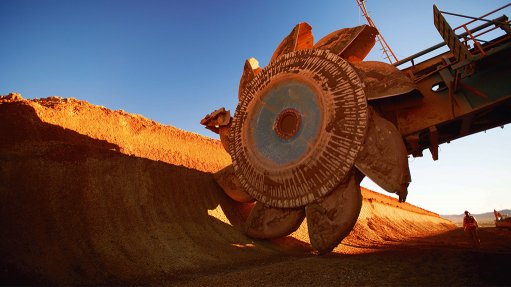Deloitte outlines 2022 TMT Predictions
As advisory firm Deloitte launches a revamped report on the trends in technology, media and telecommunications (TMT) for 2022, wide-ranging predictions have emerged.
The 2022 TMT Predictions shows trends largely driven by the global Covid-19 pandemic’s economic and societal shifts, resulting in a more connected and multidevice world, fuelling the world’s need for more chips, growth in connectivity and how more aspects of daily life are becoming intrinsically linked to a digital world, whether it be wellness or sports.
The 19 global trends for 2022, a significant growth on the nine trends outlined last year, are grouped into six categories or themes, namely all about screens; all chips all the time; making connections; healthcare anywhere; new and next; and green and diverse, says Deloitte Global TMT research head Paul Lee.
Within the all about screens theme, Deloitte has grouped streaming video-on-demand (SVOD) churn: the streaming wars go global; the games console: fitter than ever at 50; addressable television (TV) ads: targeting for teach; and traditional TV wanes in the UK.
In the all chips, all the time category is the trends of the semiconductor shortage extending into 2022; venture capital (VC) boosting investment in chip companies; and open-chip standards: how big will RISC-V get, he explained during a virtual 2022 TMT global predictions presentation.
The trends of WiFi 6: unsung, but indispensable, and fixed-wireless access (FWA): gaining on wireless broadband are listed under the making connections group, while the healthcare anywhere lists the trends of wearable devices in healthcare: getting better all the time and mental health apps: mental health goes mobile.
In the new and next category, Deloitte lists quantum computing in 2022: how useful is it; sports non-fungible tokens: from trading cards to digital video; AI’s wide shut: artificial intelligence (AI) regulation gets even more serious; and keeping AI private: homomorphic encryption and federated learning.
Making smartphones sustainable; Floatovoltaics: floating solar panels; the gender gap in reading: boys and books; and women in tech: gaining ground but facing headwinds are grouped under the green and diverse theme.
Elaborating on some of the trends, Lee says that as the games console ecosystem celebrates its fiftieth birthday in 2022, the sector holds record revenues, the release of the latest-generation devices and a strong foundation for further growth, as content, experience and business-model innovations keep it competitive.
Deloitte Global predicts that the console market will generate $81-billion in 2022, up 10% from 2021, with about $59-billion of the 2022 revenues expected to be from software sales and in-app payments.
Console software sales are expected to continue growing, reaching close to $70-billion by 2025, while digital game purchases, including downloads, subscriptions, game passes and in-app payments, are expected to rise as a share of sales from 65% in 2022 to 84% in 2025.
Meanwhile, Deloitte Global predicts that, while at least 150-million paid subscriptions to SVOD services will be cancelled worldwide this year, with churn rates of up to 30% a market, more subscriptions will be added than cancelled, the average number of subscriptions a person will rise and, in markets with the highest churn, many of those cancelling may resubscribe to a service that they had previously left.
As SVOD matures, growth across global regions that may have different cost sensitivities will likely require different business model innovations and pathways to profitability.
The current semiconductor shortage will extend into 2022, Deloitte says, noting that consumers, industry and government are clamouring for chips, leaving the semiconductor industry scrambling to keep up.
“Many types of chips will still be in short supply throughout 2022, and with some component lead times pushing into 2023, meaning that the shortage will have lasted 24 months before it recedes, similar to the duration of the 2008/9 chip shortage,” the report highlights.
Lee adds that it had an economic impact of over $500-billion.
Further, while the shortage will be less severe than in 2020 or most of 2021, it will not affect all chips.
Further, lead times, previously as high as 20 to 52 weeks in mid-2021, are expected to narrow to 10 to 20 weeks by the end of 2022, and become more in balance by 2023, he says.
VC investment in chip companies is reaching new highs, with predictions that VC firms globally will invest more than $6-billion in semiconductor companies in 2022.
“That may only be 2% of the $300-billion-plus of overall VC investment expected for 2022 but it would be second only to the remarkable 2021 figure of an estimated $8-billion, and more than three times larger than it was every year between 2000 and 2016.
Another trend predicted for 2022 is intensifying regulatory scrutiny for AI applications, which include machine learning, deep learning and neural networks, with predictions around increased discussions about regulating AI more systematically, with several proposals being made, although enacting them into actual enforced regulations will likely happen in 2023 or beyond.
The FWA market is growing strongly, gaining ground on wired broadband.
The number of FWA connections are expected to grow from about 60-million in 2020 to about 88-million in 2022, with fifth-generation (5G) FWA representing almost 7% of the total.
“While our analysis reveals a 19% compound annual growth rate (CAGR) in total FWA connections from 2020 to 2026, 5G FWA connections will grow even faster, at a CAGR of almost 88%, over the same period.”
The next generation of WiFi is also set to play a pivotal role as organisations innovate with advanced networking, with WiFi 6 devices quietly outselling 5G devices by a large margin and will likely continue to do so for the next few years.
Deloitte Global predicts that more WiFi 6 devices – at about 2.5-billion – will ship in 2022 than 5G devices, at about 1.5-billion.
While smartphones, tablets and personal computers are some of the most popular WiFi 6-equipped devices, WiFi 6 is also used in many other devices, including wireless cameras, smart home devices, game consoles, wearables and virtual reality headsets.
Meanwhile, Deloitte Global predicts that 320-million consumer health and wellness wearable devices will ship worldwide in 2022, and by 2024, will likely reach nearly 440-million units, as new offerings reach the market and more healthcare providers become comfortable with using them.
Further, the mental health application market will continue its growth path over the next few years, with global spending on mobile mental health applications reaching nearly $500-million in 2022, assuming a conservative annual growth rate of 20%, considering the 32% growth from $203-million in the first 10 months of 2019 to $269-million in the same period in 2020.
The report points to another trend in the gender gap across the technology industry wherein large global technology firms, on average, will reach nearly 33% overall female representation in their workforces in 2022, up slightly more than two percentage points from 2019, which, while small, represents notable progress.
“The proportion of women in technical roles will also nudge up, though it has tended to lag the overall proportion of women by about eight percentage points. But while this progress is a step in the right direction, going forward, technology companies may need to work even harder to improve these numbers.”
Meanwhile, lengthening phone lifetimes would help reduce the environmental impact of smartphones, and Deloitte Global predicts that smartphones, expected to have an installed base of 4.5-billion this year, will generate 146-million tons of carbon dioxide equivalent emissions (CO2e) in 2022, which is less than half a per cent of the 34 gigatons of total CO2e emitted globally in 2021.
“The bulk of these emissions, 83% of the total, will come from the manufacture, shipping and first-year use of the 1.4-billion new smartphones forecast to be shipped in 2022. Use-related emissions from the other 3.1-billion smartphones in use during 2022 will generate an additional 11%, and the remainder will come from refurbishing existing smartphones and end-of-life processes, including recycling.
Comments
Press Office
Announcements
What's On
Subscribe to improve your user experience...
Option 1 (equivalent of R125 a month):
Receive a weekly copy of Creamer Media's Engineering News & Mining Weekly magazine
(print copy for those in South Africa and e-magazine for those outside of South Africa)
Receive daily email newsletters
Access to full search results
Access archive of magazine back copies
Access to Projects in Progress
Access to ONE Research Report of your choice in PDF format
Option 2 (equivalent of R375 a month):
All benefits from Option 1
PLUS
Access to Creamer Media's Research Channel Africa for ALL Research Reports, in PDF format, on various industrial and mining sectors
including Electricity; Water; Energy Transition; Hydrogen; Roads, Rail and Ports; Coal; Gold; Platinum; Battery Metals; etc.
Already a subscriber?
Forgotten your password?
Receive weekly copy of Creamer Media's Engineering News & Mining Weekly magazine (print copy for those in South Africa and e-magazine for those outside of South Africa)
➕
Recieve daily email newsletters
➕
Access to full search results
➕
Access archive of magazine back copies
➕
Access to Projects in Progress
➕
Access to ONE Research Report of your choice in PDF format
RESEARCH CHANNEL AFRICA
R4500 (equivalent of R375 a month)
SUBSCRIBEAll benefits from Option 1
➕
Access to Creamer Media's Research Channel Africa for ALL Research Reports on various industrial and mining sectors, in PDF format, including on:
Electricity
➕
Water
➕
Energy Transition
➕
Hydrogen
➕
Roads, Rail and Ports
➕
Coal
➕
Gold
➕
Platinum
➕
Battery Metals
➕
etc.
Receive all benefits from Option 1 or Option 2 delivered to numerous people at your company
➕
Multiple User names and Passwords for simultaneous log-ins
➕
Intranet integration access to all in your organisation


















